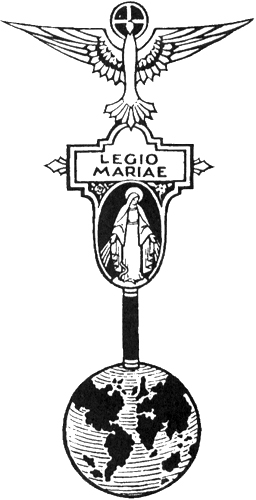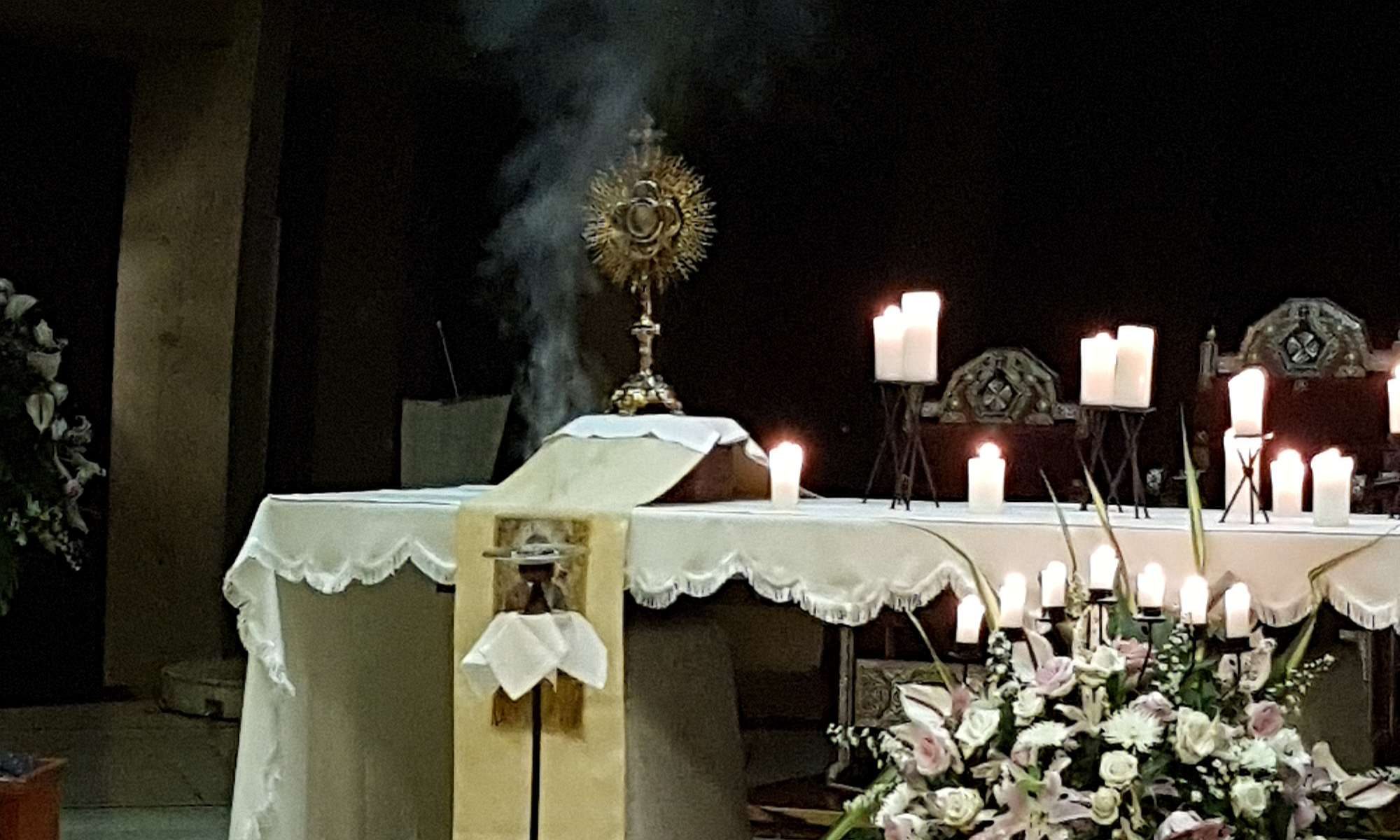 In every meeting of the Legion of Mary we make the words of the Blessed Virgin our own. Each one of us in some way take her place in praising God’s power, wisdom and mercy, for each one says: “My soul glorifies the Lord…” It is good therefore to pause for a moment and to reflect a little upon the sense of Mary’s Canticle, especially when we gather on the solemn occasion of the Acies.
In every meeting of the Legion of Mary we make the words of the Blessed Virgin our own. Each one of us in some way take her place in praising God’s power, wisdom and mercy, for each one says: “My soul glorifies the Lord…” It is good therefore to pause for a moment and to reflect a little upon the sense of Mary’s Canticle, especially when we gather on the solemn occasion of the Acies.
The Magnificat, as it is known for its first word in the Latin version, is firstly a hymn of victory. Fittingly enough, the Legion anticipates victory as we all join to the One who best knew the power of the Almighty. Have we considered that the Incarnation is a victory in itself? Pride is conquered, Satan flees away, the darkness comes to and end: behold Christ, “Light from Light,” whose day has no sunset. We simply cannot imagine the profundity of Mary’s experience of God’s power. St. Thomas Aquinas says that every act of God’s grace exceeds the visible universe. Mary, duly addressed as “Full of Grace,” came to know the action of God’s love beyond every boundary. It was nothing less as though God was creating a new and far better universe in her womb. She had every reason to say “My soul glorifies the Lord.”
The Incarnation is God’s victory but also is Mary’s. When she says that the Lord “looks on his servant in her lowliness;” when she joyfully exults because God “raises the lowly;” when she acknowledges that He “protects Israel,” she is not elaborating a complex theory on God. She is telling the world that, so to speak, trust in the Lord pays back. In some sense she is the ambassador of all of us, and her song of praise is her way of telling everybody that everything she invested in God was best invested.
I know this is a very unfamiliar language to make reference to such spiritual matters, but sometimes it is good to take a fresh and unusual perspective to discover rather new things. Mary had invested everything in God’s cause: her life, her heart, her virginity, her future. We have to remember that she is not alone in this spiritual attitude of surrendering everything. So often that is the only choice for the poor and the needy! In this sense, her canticle is a shout of hope and a call to take heart even if all our “investments” remain hidden in God’s bosom.
The Magnificat is a prophecy and Mary is a prophetess. Few people could claim such a title in a better position than she holds, if we understand by prophet “someone who speaks by divine inspiration; someone who is an interpreter of the will of God” as it reads in the dictionary. What was the role of the prophets in the Old Testament. We tend to emphasize their gift of foretelling but probably this was not the main aspect of their vocation and life. In front of kings and the crowds, before enemies and foes, in dire and troubled circumstances the prophets were the ones that remained faithful to the Lord, only attentive to one voice in the midst of so many noises. Their ears were trained to discern God’s will and to show the way out in full accordance to his plan. The Magnificat is prophecy. Singing the Magnificat one learns to fine tune the spiritual ear in order to get a glimpse of God’s plan.
Besides, there is an explicit prediction in the Magnificat. The Blessed Virgin says: “Henceforth all ages will call me blessed.” Our own age call her blessed indeed. Our very voices are the fulfillment of her prophecy and we are delighted to proclaim that She is beautiful with God’s beauty, wise with God’s wisdom, powerful with God’s aid and might.
Today, my friends, is a great day, and if the present situation of some presidia make us feel poor and needy, all the better. Thus we get closer to the humble state of Mary’s heart when she cried with elation: “My soul glorifies the Lord, my spirit rejoices in God, my Saviour.”
